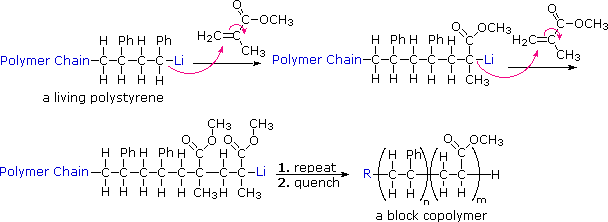Innovative Polymers: Revolutionizing Modern Production
Checking Out the Varied Applications and Advantages of Polymers in Different Industries
Polymers, with their varied array of buildings and functionalities, have become essential in different markets, each enjoying special gain from their application. Polymers. From improving security and efficiency in the vehicle market to reinventing medical gadgets in the healthcare industry, polymers play a pivotal role. Moreover, their environment-friendly nature is changing the landscape of sustainability methods. As we explore the depths of polymers in electronic devices, we discover innovative developments, while their structural integrity transforms the world of building and facilities. The pervasive influence of polymers across industries is a testimony to their convenience and flexibility, shaping the future of countless markets.
Automotive Industry Applications
Polymers play a crucial role in enhancing the performance and longevity of various components within the automobile market. One noticeable usage of polymers in the automotive market is in the production of lightweight elements.

Health Care Sector Benefits
In various health care applications, the benefits of making use of polymers are widely recognized for their diverse variety of beneficial buildings. Polymers play a vital duty in the health care market as a result of their versatility, biocompatibility, and cost-effectiveness. One of the primary advantages of polymers in health care is their capability to be tailored to particular demands, such as adaptability, sturdiness, and biodegradability, making them suitable for a wide range of clinical applications.
Polymer-based products are thoroughly utilized in medical devices, such as catheters, implants, prosthetics, and medicine distribution systems, because of their biocompatibility and capability to imitate natural cells. These products can decrease the risk of allergies or beings rejected, improving client safety and outcomes. Additionally, polymers are lightweight, making them ideal for wearable clinical gadgets and making sure client comfort.
Additionally, polymers make it possible for the advancement of ingenious therapy approaches, such as hydrogels for tissue design and nanocomposites for targeted drug shipment. Their ease of processing and sanitation makes them necessary for maintaining high requirements of hygiene in health care setups. Overall, the varied benefits of polymers contribute dramatically to developments in clinical technology and client treatment.
Environmental Benefits of Polymers
:max_bytes(150000):strip_icc()/three-dimensional-model-of-polyvinyl-chloride-165874889-5c425ea7c9e77c000188be6d.jpg)
Additionally, polymers can add to power cost savings as a result of their lightweight nature. In sectors such as transportation, lightweight polymer products can help in reducing fuel consumption and greenhouse gas emissions. Additionally, polymers can allow the advancement of energy-efficient products such as insulation materials that enhance power preservation in structures.
In addition, polymers play an essential function in minimizing water contamination. The use of polymer-based purification systems can properly get rid of toxins and impurities from wastewater, securing water resources and communities. In general, the environmental benefits of polymers make them beneficial properties in promoting sustainability and eco-friendly practices throughout numerous markets.
Polymers in Electronics and Technology
Considering the increasing need for innovative and sustainable solutions in modern-day industries, the combination of sophisticated polymer innovations in the world of electronic devices and my sources innovation has actually become an essential technique for driving efficiency and performance. Polymers have revolutionized the electronics market by allowing the production of lighter, extra versatile, and durable electronic tools. From mobile phones to clinical gadgets, polymers play a critical function in enhancing product style and functionality.
One substantial advantage of polymers in electronics is their this article protecting buildings, which assist protect fragile electronic elements from environmental variables and electric interference. Furthermore, polymers are vital in the development of adaptable screens, wearable technology, and published electronics, using limitless possibilities for creating clever and interconnected devices.
Moreover, making use of polymers in electronic product packaging has actually led to improvements in miniaturization and thermal monitoring, improving the general efficiency and integrity of digital systems. As technology remains to develop, the convenience and adaptability of polymers will most certainly drive further development in the electronics market, forming the future of modern technology.
Duty of Polymers in Building And Construction and Infrastructure
Polymers supply many advantages in the building industry due to their convenience, toughness, and cost-effectiveness. One crucial function of polymers in construction is their usage in finishings and sealants, providing defense against environmental factors such as dampness, UV radiation, and rust.
In addition, polymers play an important duty in sustainable building methods by enabling the advancement of energy-efficient frameworks. Shielding products hop over to these guys made from polymers help control interior temperature levels, lowering the need for heating and cooling systems and eventually decreasing power consumption - Polymers.
Final Thought
Finally, polymers play an important function in numerous sectors such as automotive, healthcare, environmental, electronics, and building and construction. Their versatile buildings make them valuable in creating innovative solutions and items. From improving fuel efficiency in vehicles to improving clinical gadgets, polymers use many benefits. Furthermore, their effect on minimizing waste and advertising sustainability highlights their value in contemporary applications. The extensive use polymers demonstrates their substantial payment to progressing innovation and improving quality of life.